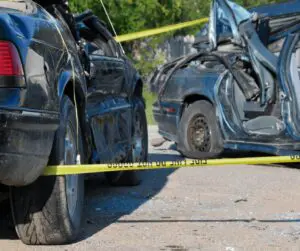What is a Claim?
A claim is a legal action concerning physical or mental harm suffered by the plaintiff due to the defendant’s negligence. In the case of insurance claims, it is a request made by the insured to the insurance company for coverage and compensation for damage or injury. A claim is sometimes also referred to as a Cause of Action.

What is a Claim?
Cornell Law School’s Legal Information Institute defines a claim as, “a set of operative facts creating a right enforceable in court.” Making a claim is how the process of a plaintiff filing a lawsuit and eventually receiving damages from a defendant begins. A claim must be present in order for a lawsuit to go forward. If one is not present in a specific instance, then that lawsuit will be dismissed. Examples of types of claims include claims to insurance companies, personal injury claims in cases of negligence, claims on breaches of contract, property claims, and employment claims such as unpaid wages, wrongful termination, or discrimination. A defendant may make a counterclaim against the claim of a plaintiff.
Claims can sometimes be dismissed even if there is an intent to file a lawsuit. Rulings in cases such as Ashcroft v. IQBAL and Bell Atlantic v. Twombly have determined that claims need to contain important information. They must be plausible on their own and establish a likelihood of liability. This is how claims can lead to fair compensation, resolution of disputes, and protection of rights.
More information about Claim
Harrisburg Car Accident Lawyer
A Harrisburg car accident lawyer from Munley Law understands how overwhelming a crash can be, especially when dealing with injuries and complex insurance claims. For 65 years, our experienced legal team has helped Harrisburg residents navigate Pennsylvania car accident laws and secure the compensation they deserve after accidents caused by negligent drivers or poor road maintenance. Contact us today for a free, no-obligation consultation, and let our trusted attorneys guide your path to justice. There is no fee unless we win your case.
Understanding Car Accidents in Harrisburg
 In the heart of Pennsylvania, the city of Harrisburg witnesses a dynamic mix of traffic, from bustling intercity commutes to serene countryside drives. However, this traffic flow also leads to a significant number of car accidents. Dauphine County reported 2,761 crashes in 2023.
In the heart of Pennsylvania, the city of Harrisburg witnesses a dynamic mix of traffic, from bustling intercity commutes to serene countryside drives. However, this traffic flow also leads to a significant number of car accidents. Dauphine County reported 2,761 crashes in 2023.
Every Harrisburg auto accident injury claim hinges on negligence, […]
Read MoreMore information about Claim
Pottsville Personal Injury Lawyer
Pottsville Personal Injury Lawyer
GET A FREE CONSULTATION
Accidents in Pottsville and surrounding communities can have an overwhelming physical, emotional, and financial toll. At Munley Law, our Pottsville personal injury lawyers provide skilled, compassionate representation for car accidents, truck accidents, workplace injuries, slip-and-falls, and medical malpractice cases throughout Schuylkill County.
Our Pottsville injury law firm was founded to provide skilled, compassionate representation that levels the playing field against powerful insurance companies. Whether you’ve suffered injuries on Route 61, in a mining accident, or due to medical malpractice at a local healthcare facility, our Schuylkill County personal injury attorneys have successfully recovered millions in compensation for clients just like you.
Contact our Pottsville personal injury law firm today for a free consultation. Located in downtown Pottsville, with no fees unless we win your case. […]
Read MoreMore information about Claim
Doylestown Personal Injury Lawyer
When you’re dealing with mounting medical bills, missed work, and the physical pain of recovery, you need experienced legal guidance to protect your interests. A Doylestown personal injury lawyer from Munley Law can help you get back on your feet after a serious accident changes your life. Our attorneys understand the challenges that injury victims face in Bucks County — from complex insurance claims to securing proper medical care. We work tirelessly to hold negligent parties accountable and pursue the full compensation you need to move forward.
Whether you were hurt in a car crash, workplace accident, or due to someone else’s carelessness, our team has the skills and resources to handle your case effectively. Don’t wait to get the legal help you deserve. Contact Munley Law today for a free consultation with our Doylestown personal injury attorneys.
Your Rights After a Personal Injury in Doylestown
 After an injury in Doylestown, […]
After an injury in Doylestown, […]
More information about Claim
Can I Change Lawyers in the Middle of a Personal Injury Case?
In a personal injury claim, having the right attorney by your side is of the utmost importance. However, there are cases when clients feel their current lawyer isn’t providing the necessary representation. What happens then?
Even though you may feel stuck, the truth is, you have options. Whether you’re experiencing communication issues, questioning your attorney’s strategy, or simply feel your case isn’t receiving proper attention, understanding your rights and the process for changing legal representation can make a significant difference in the outcome of your personal injury case.
We will walk you through everything you need to know about switching attorneys mid case and helping you make an informed decision that protects your legal rights and potential recovery. If you have any more questions, call the personal injury lawyers at Munley Law. We offer a free consultation to new clients. We’ll discuss your case and lay out your legal options. […]
Read MoreMore information about Claim
Cranberry Township Workers’ Compensation Lawyer
Injured at work in Cranberry Township? Know your rights and the compensation you’re entitled to. The Cranberry Township personal injury team at Munley Law helps clients secure medical care and wage-loss benefits after workplace accidents.
For 65 years, we’ve handled cases from back injuries to catastrophic accidents across Butler County’s manufacturing plants, warehouses, construction sites, and other hazardous worksites.
Pennsylvania law entitles you to benefits covering medical bills and lost wages during recovery. Insurance companies often deny valid claims or terminate benefits prematurely. Our attorneys understand insurers’ tactics to minimize claims and counter with strong evidence and medical documentation to protect your rights.
We’ve secured millions in benefits for injured workers throughout Western Pennsylvania. Contact Munley Law today for a free consultation with our Cranberry Township personal injury lawyers.
How Our Cranberry Township Workers’ Compensation Attorneys Fight for You

Getting workers’ […]










